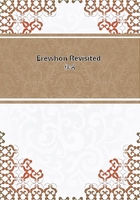
第31章
I will now return to my father. Whether from fatigue or over-excitement, he slept only by fits and starts, and when awake he could not rid himself of the idea that, in spite of his disguise, he might be recognised, either at his inn or in the town, by some one of the many who had seen him when he was in prison. In this case there was no knowing what might happen, but at best, discovery would probably prevent his seeing the temple dedicated to himself, and hearing Professor Hanky's sermon, which he was particularly anxious to do.
So strongly did he feel the real or fancied danger he should incur by spending Saturday in Sunch'ston, that he rose as soon as he heard any one stirring, and having paid his bill, walked quietly out of the house, without saying where he was going.
There was a town about ten miles off, not so important as Sunch'ston, but having some 10,000 inhabitants; he resolved to find accommodation there for the day and night, and to walk over to Sunch'ston in time for the dedication ceremony, which he had found on inquiry, would begin at eleven o'clock.
The country between Sunch'ston and Fairmead, as the town just referred to was named, was still mountainous, and being well wooded as well as well watered, abounded in views of singular beauty; but I have no time to dwell on the enthusiasm with which my father described them to me. The road took him at right angles to the main road down the valley from Sunch'ston to the capital, and this was one reason why he had chosen Fairmead rather than Clearwater, which was the next town lower down on the main road. He did not, indeed, anticipate that any one would want to find him, but whoever might so want would be more likely to go straight down the valley than to turn aside towards Fairmead.
On reaching this place, he found it pretty full of people, for Saturday was market-day. There was a considerable open space in the middle of the town, with an arcade running round three sides of it, while the fourth was completely taken up by the venerable Musical Bank of the city, a building which had weathered the storms of more than five centuries. On the outside of the wall, abutting on the market-place, were three wooden sedilia, in which the Mayor and two coadjutors sate weekly on market-days to give advice, redress grievances, and, if necessary (which it very seldom was) to administer correction.
My father was much interested in watching the proceedings in a case which he found on inquiry to be not infrequent. A man was complaining to the Mayor that his daughter, a lovely child of eight years old, had none of the faults common to children of her age, and, in fact, seemed absolutely deficient in immoral sense. She never told lies, had never stolen so much as a lollipop, never showed any recalcitrancy about saying her prayers, and by her incessant obedience had filled her poor father and mother with the gravest anxiety as regards her future well-being. He feared it would be necessary to send her to a deformatory.
"I have generally found," said the Mayor, gravely but kindly, "that the fault in these distressing cases lies rather with the parent than the children. Does the child never break anything by accident?""Yes," said the father.
"And you have duly punished her for it?"
"Alas! sir, I fear I only told her she was a naughty girl, and must not do it again.""Then how can you expect your child to learn those petty arts of deception without which she must fall an easy prey to any one who wishes to deceive her? How can she detect lying in other people unless she has had some experience of it in her own practice? How, again, can she learn when it will be well for her to lie, and when to refrain from doing so, unless she has made many a mistake on a small scale while at an age when mistakes do not greatly matter?
The Sunchild (and here he reverently raised his hat), as you may read in chapter thirty-one of his Sayings, has left us a touching tale of a little boy, who, having cut down an apple tree in his father's garden, lamented his inability to tell a lie. Some commentators, indeed, have held that the evidence was so strongly against the boy that no lie would have been of any use to him, and that his perception of this fact was all that he intended to convey; but the best authorities take his simple words, 'I cannot tell a lie,' in their most natural sense, as being his expression of regret at the way in which his education had been neglected. If that case had come before me, I should have punished the boy's father, unless he could show that the best authorities are mistaken (as indeed they too generally are), and that under more favourable circumstances the boy would have been able to lie, and would have lied accordingly.
"There is no occasion for you to send your child to a deformatory.
I am always averse to extreme measures when I can avoid them.